286 scholarly books by Haus Publishing and 27
start with C
286 scholarly books by Haus Publishing and 27
286 scholarly books by Haus Publishing
27 start with C start with C
27 start with C start with C
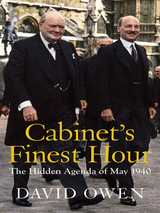
Cabinet's Finest Hour
The Hidden Agenda of May 1940
David Owen
Haus Publishing, 2016
In May 1940, the British War Cabinet debated over the course of nine meetings a simple question: Should Britain fight on in the face of overwhelming odds, sacrificing hundreds of thousands of lives, or seek a negotiated peace? Using Cabinet papers from the United Kingdom’s National Archives, David Owen illuminates in fascinating detail this little-known, yet pivotal, chapter in the history of World War II.
Eight months into the war, defeat seemed to many a certainty. With the United States still a year and half away from entering, Britain found itself in a perilous position, and foreign secretary Lord Halifax pushed prime minister Winston Churchill to explore the possibility of a negotiated peace with Hitler, using Mussolini as a conduit. Speaking for England is the story of Churchill’s triumph in the face of this pressure, but it is also about how collective debate and discussion won the day—had Churchill been alone, Owen argues, he would almost certainly have lost to Halifax, changing the course of history. Instead, the Cabinet system, all too often disparaged as messy and cumbersome, worked in Britain’s interests and ensured that a democracy on the brink of defeat had the courage to fight on.
Eight months into the war, defeat seemed to many a certainty. With the United States still a year and half away from entering, Britain found itself in a perilous position, and foreign secretary Lord Halifax pushed prime minister Winston Churchill to explore the possibility of a negotiated peace with Hitler, using Mussolini as a conduit. Speaking for England is the story of Churchill’s triumph in the face of this pressure, but it is also about how collective debate and discussion won the day—had Churchill been alone, Owen argues, he would almost certainly have lost to Halifax, changing the course of history. Instead, the Cabinet system, all too often disparaged as messy and cumbersome, worked in Britain’s interests and ensured that a democracy on the brink of defeat had the courage to fight on.
[more]
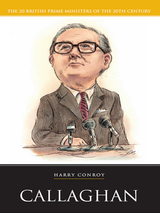
Callaghan
Harry Conroy
Haus Publishing, 2006
Part of the Prime Ministers Series, Callaghan was the Labour Prime Minister who was defeated by Thatcher
[more]

Calligraphers Secret
Rafik Schami and Anthea Bell
Haus Publishing, 2011
Even as a young man, Hamid Farsi is acclaimed as a master of the art of calligraphy. But as time goes by, he sees that weaknesses in the Arabic language and its script limit its uses in the modern world. In a secret society, he works out schemes for radical reform, never guessing what risks he is running. His beautiful wife, Noura, is ignorant of the great plans on her husband’s mind. She knows only his cold, avaricious side and so it is no wonder she feels flattered by the attentions of his amusing, lively young apprentice. And so begins a passionate love story of a Muslim woman and a Christian man.
[more]

Campbell-Bannerman
Roy Hattersley
Haus Publishing, 2006
A biography of the intriguing life of the unknown Liberal British Prime Minister.
[more]
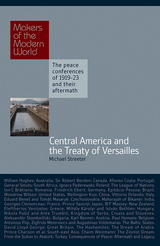
Central America and the Treaty of Versailles
Michael Streeter
Haus Publishing, 2010
They were in the United States' backyard, and in some cases under her direct protection. So in many ways it was little surprise when Cuba, Haiti, Nicaragua, Guatemala, Panama and Honduras joined the war on the Allied side in 1917 and 1918. Their involvement in the war was minimal, indeed scarcely noticeable, but it was enough. It earned these small relatively powerless nations—in Haiti's case barely a functioning state—an invitation to sit alongside the Great Powers at the Paris Peace Conference of 1919 and sign the Treaty of Versailles.
[more]

Chaim Weizmann
The Zionist Dream
Tom Fraser
Haus Publishing, 2009
The Arab-Israeli conflict has been one of the most defining features of recent world history, flaring up into open war fare yet again in Gaza at the end of 2008 and provoking large-scale demonstrations in the streets of cities across the world. The decision in 1919 by the Paris Peace Conference to award the Mandate for Palestine to Great Britain—which had announced its commitment to the creation of a national home for the Jewish people in the Balfour Declaration two years previously—sowed the seeds of this seemingly intractable problem, yet when the Zionist leader Chaim Weizmann (1874-1952) spoke before the Conference on 27 February 1919, he would have appeared as only one of the many representatives of minor nationalities putting their case to the peacemakers, and, what is more, one whose people had no territory of their own. How a Jewish chemistry professor from an obscure part of Eastern Europe could find himself at the heart of international diplomacy, and later become the first president of the State of Israel, is one of the most fascinating stories of the Paris Peace Conference and its aftermath. Ninety years after the Conference, what Weizmann said and did there is an essential part of our understanding of how this small, but critical, part of the world evolved out of the deliberations.
[more]
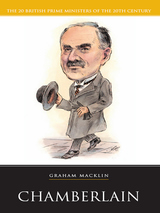
Chamberlain
Graham Macklin
Haus Publishing, 2006
Former British Prime Minister who will always be remembered for his appeasement policy towards Hitler.
[more]
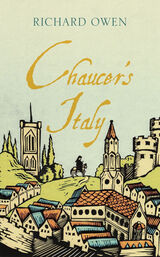
Chaucer's Italy
Richard Owen
Haus Publishing, 2022
An exploration of the influence of Italy and Italians on Chaucer’s life and writing.
Geoffrey Chaucer might be considered the quintessential English writer, but he drew much of his inspiration and material from Italy. In fact, without the tremendous influence of Francesco Petrarch and Giovanni Boccaccio (among others), the author of The Canterbury Tales might never have assumed his place as the “father” of English literature. Nevertheless, Richard Owen’s Chaucer’s Italy begins in London, where the poet dealt with Italian merchants in his roles as court diplomat and customs official. Next Owen takes us, via Chaucer’s capture at the siege of Rheims, to his involvement in arranging the marriage of King Edward III’s son Lionel in Milan and his missions to Genoa and Florence. By scrutinizing his encounters with Petrarch, Boccaccio, and the mercenary knight John Hawkwood—and with vividly evocative descriptions of the Arezzo, Padua, Florence, Certaldo, and Milan that Chaucer would have encountered—Owen reveals the deep influence of Italy’s people and towns on Chaucer’s poems and stories. Much writing on Chaucer depicts a misleadingly parochial figure, but as Owen’s enlightening short study of Chaucer’s Italian years makes clear, the poet’s life was internationally eventful. The consequences have made the English canon what it is today.
Geoffrey Chaucer might be considered the quintessential English writer, but he drew much of his inspiration and material from Italy. In fact, without the tremendous influence of Francesco Petrarch and Giovanni Boccaccio (among others), the author of The Canterbury Tales might never have assumed his place as the “father” of English literature. Nevertheless, Richard Owen’s Chaucer’s Italy begins in London, where the poet dealt with Italian merchants in his roles as court diplomat and customs official. Next Owen takes us, via Chaucer’s capture at the siege of Rheims, to his involvement in arranging the marriage of King Edward III’s son Lionel in Milan and his missions to Genoa and Florence. By scrutinizing his encounters with Petrarch, Boccaccio, and the mercenary knight John Hawkwood—and with vividly evocative descriptions of the Arezzo, Padua, Florence, Certaldo, and Milan that Chaucer would have encountered—Owen reveals the deep influence of Italy’s people and towns on Chaucer’s poems and stories. Much writing on Chaucer depicts a misleadingly parochial figure, but as Owen’s enlightening short study of Chaucer’s Italian years makes clear, the poet’s life was internationally eventful. The consequences have made the English canon what it is today.
[more]
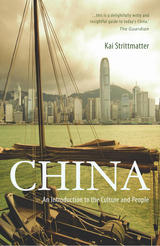
China
An Introduction to the Culture and People
Kai Strittmatter
Haus Publishing, 2010
It's time we got to know a little more about the Chinese. Did you know they don't eat soup, they drink it? That their surnames come before their first names? That their good sense is to be found not in their heads but in their hearts? Or that white is their colour of mourning? This guide to avoiding the numerous pitfalls of Chinese etiquette is both amusing and informative. The writer and journalist Kai Strittmatter lived and worked in China for ten years. This amusing, affectionate and perceptive book provides a fascinating guide to this lively, sociable and friendly people and their complex and often contradictory society. As the author says: "Be prepared for everything when you come to Beijing. It really is unbelievable what can happen here." The new material in this edition takes a critical look at the challenges posed by this, the next global superpower.
[more]
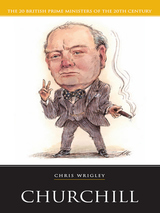
Churchill
Chris Wrigley
Haus Publishing, 2006
Part of the 20 Prime Ministers Series
[more]

Churchill
Sebastian Haffner
Haus Publishing, 2003
Winston Churchill (1874-1965, KG 1953) Conservative politician, Prime Minister 1940-5 and 1951-5. Perhaps the most determined and inspirational war leader in Britain's history, it was during that darkest summer of 1940 that Churchill's astonishing oratory seemed to rally the nation, from his opening statement to the House of Commons on May 13th that he had 'nothing to offer but blood, toil, tears and sweat'. Each successive crisis produced phrases that have resounded ever since, from the danger of invasion after the evacuation of troops from Dunkirk ('their finest hour') to the Battle of Britain (his tribute to the 'Few'). However, he lost the general election in June 1945. But he returned to Downing Street in 1951, finally retiring in 1955.
[more]
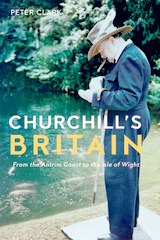
Churchill's Britain
From the Antrim Coast to the Isle of Wight
Peter Clark
Haus Publishing, 2020
Clark takes us on a geographical journey through Churchill's life, following his footsteps through Britain and Ireland.
More than half a century after his death, Winston Churchill, the most significant British statesman of the twentieth century, continues to intrigue us. Peter Clark’s book, however, is not merely another Churchill biography. Churchill’s Britain takes us on a geographical journey through Churchill’s life, leading us in Churchill’s footsteps through locations in Britain and Ireland that are tied to key aspects of his biography. Some are familiar–Blenheim Palace, where he was born; Chartwell, his beloved house in the country; and the Cabinet War Rooms, where he planned the campaigns of World War II. But we also are taken to his schools, his parliamentary constituencies, locations of famous speeches, the place where he started to paint, the tobacco shop where he bought his cigars, and the graves of his family and close friends.
Clark brings us close to the statesman Churchill by visiting sites that were important to the story of his long life, from the site where his father proposed to his American mother on the Isle of Wight to his grave in a country churchyard in Oxfordshire. Designed as a gazetteer with helpful regional maps, Churchill’s Britain can be dipped into, consulted by the traveler on a Churchill tour of Britain, or read straight through—and no matter how it’s read, it will deliver fresh insights into this extraordinary man.
More than half a century after his death, Winston Churchill, the most significant British statesman of the twentieth century, continues to intrigue us. Peter Clark’s book, however, is not merely another Churchill biography. Churchill’s Britain takes us on a geographical journey through Churchill’s life, leading us in Churchill’s footsteps through locations in Britain and Ireland that are tied to key aspects of his biography. Some are familiar–Blenheim Palace, where he was born; Chartwell, his beloved house in the country; and the Cabinet War Rooms, where he planned the campaigns of World War II. But we also are taken to his schools, his parliamentary constituencies, locations of famous speeches, the place where he started to paint, the tobacco shop where he bought his cigars, and the graves of his family and close friends.
Clark brings us close to the statesman Churchill by visiting sites that were important to the story of his long life, from the site where his father proposed to his American mother on the Isle of Wight to his grave in a country churchyard in Oxfordshire. Designed as a gazetteer with helpful regional maps, Churchill’s Britain can be dipped into, consulted by the traveler on a Churchill tour of Britain, or read straight through—and no matter how it’s read, it will deliver fresh insights into this extraordinary man.
[more]

Cinnamon
Samar Yazbek
Haus Publishing, 2012
In the dark of night, Hanan al-Hashimi awakens from a nightmare, confused and shaken. Roaming the house in search of some reassurance, she is drawn towards the streak of light under her husband's bedroom door. Little does she know that the beckoning glow will turn her life on its head...
[more]
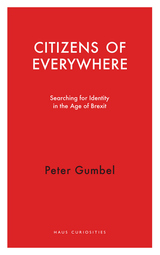
Citizens of Everywhere
Searching for Identity in the Age of Brexit
Peter Gumbel
Haus Publishing, 2020
In 1939, as war loomed, Peter Gumbel’s Jewish-born grandparents fled Nazi Germany for England. But within a matter of decades, their grandson, appalled by the Brexit referendum, had become a citizen of the country they fled eighty years ago. How had it come to this?
Drawing on one family’s migration stories, Citizens of Everywhere explores the nature of belonging amid cycles of pluralism and nationalism. In an increasingly global world, nativist and diasporic impulses pull many people in contradictory directions that can be difficult to even understand. In Citizens of Everywhere, Gumbel grapples with this complexity through his own family history, revealing the personal costs of Britain’s recent isolationist retreat. Along the way, he laments the decline of British pluralism at the worst possible moment—as it rejects the European project and engages in an ill-fated struggle against an ever more interconnected world.
Drawing on one family’s migration stories, Citizens of Everywhere explores the nature of belonging amid cycles of pluralism and nationalism. In an increasingly global world, nativist and diasporic impulses pull many people in contradictory directions that can be difficult to even understand. In Citizens of Everywhere, Gumbel grapples with this complexity through his own family history, revealing the personal costs of Britain’s recent isolationist retreat. Along the way, he laments the decline of British pluralism at the worst possible moment—as it rejects the European project and engages in an ill-fated struggle against an ever more interconnected world.
[more]
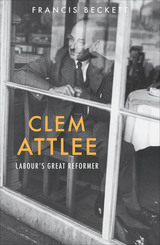
Clem Attlee
Labour's Great Reformer
Francis Beckett
Haus Publishing, 2015
As British prime minister from 1945 to 1951, Clement Attlee built a legacy that includes today’s famous—and controversial—National Health Service, yet he is often remembered as a rather dull political figure. Rejecting Winston Churchill’s jibe that Attlee was a “modest little man with plenty to be modest about,” this biography makes the case that his reputation as Britain’s greatest reforming prime minister is fully deserved.
Building on his earlier work on Attlee and including new research and stories, many of which are published here for the first time, Francis Beckett highlights Attlee’s relevance for a new generation. A poet and dreamer, Attlee led a remarkable political life that saw, among other challenges, the beginning of the Cold War. Ultimately, this perceptive biography demonstrates that Attlee’s ideas have never been more relevant.
Building on his earlier work on Attlee and including new research and stories, many of which are published here for the first time, Francis Beckett highlights Attlee’s relevance for a new generation. A poet and dreamer, Attlee led a remarkable political life that saw, among other challenges, the beginning of the Cold War. Ultimately, this perceptive biography demonstrates that Attlee’s ideas have never been more relevant.
[more]
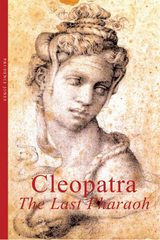
Cleopatra
Prudence Jones
Haus Publishing, 2006
This biography concentrates on Cleopatra's ever-shifting identity. Depending on the audience, she might present herself as a goddess, a political leader, or an alluring and exotic woman. Roman statesmen likewise manipulated Cleopatra's image for their own political ends.
[more]
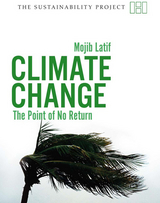
Climate Change
The Point of No Return
Mojib Latif
Haus Publishing, 2009
There is no doubt: climate change is happening, and mankind is increasingly to blame. Climate Change: The Point of No Return provides a solid basis for the current discussion about climate change, by addressing the arguments from both sides of the debate and offering an objective evaluation of the facts. Using the latest scientific information about the causes of the global climate change, Professor Latif presents the likely scenario that will face us if we don't dedicate ourselves to a course of sustainable development, and offers concrete options for action.
[more]

The Cocaine Salesman
Conny Braam
Haus Publishing
Lucien Hirschland, travelling salesman for the flourishing Nederlandsche Cocaine Fabriek, brings in a big order from an English pharmaceutical company. Soon after this he closes a deal with a buyer for the German army. Cocaine and war, love and vengeance, The Cocaine Salesman is an unparalleled novel based on historical events.
[more]
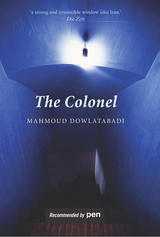
The Colonel
Mahmoud Dowlatabadi
Haus Publishing, 2011
A pitch black, rainy night in a small Iranian town. Inside his house the Colonel is immersed in thought. Memories are storming in. Memories of his wife. Memories of the great patriots of the past, all of them assassinated or executed. Memories of his children, who had joined the different factions of the 1979 revolution. There is a knock on the door. Two young policemen have come to summon the Colonel to collect the tortured body of his youngest daughter and bury her before sunrise. The Islamic Revolution, like every other revolution in history, is devouring its own children. And whose fault is that? This shocking diatribe against the failures of the Iranian left over the last fifty years does not leave one taboo unbroken.
[more]
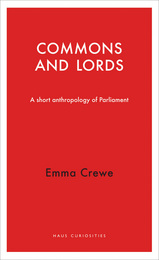
Commons and Lords
A Short Anthropology of Parliament
Emma Crewe
Haus Publishing, 2015
The British Parliament rewards close scrutiny not just for the sake of democracy, but also because the surprises it contains challenge our understanding of British politics. Commons and Lords pulls back the curtain on both the upper House of Lords and the lower House of Commons to examine their unexpected inner workings.
Based on fieldwork within both Houses, this volume in the Haus Curiosities series provides a surprising twist in how relationships in each play out. The high social status of peers in the House of Lords gives the impression of hierarchy and, more specifically, patriarchy. In contrast, the House of Commons conjures impressions of equality and fairness between members. But actual observation reveals the opposite: while the House of Lords has an egalitarian and cooperative ethos that is also supportive of female members, the competitive and aggressive House of Commons is a far less comfortable place for women. Offering many surprises and secrets, this book exposes the sheer oddity of the British parliament system.
Based on fieldwork within both Houses, this volume in the Haus Curiosities series provides a surprising twist in how relationships in each play out. The high social status of peers in the House of Lords gives the impression of hierarchy and, more specifically, patriarchy. In contrast, the House of Commons conjures impressions of equality and fairness between members. But actual observation reveals the opposite: while the House of Lords has an egalitarian and cooperative ethos that is also supportive of female members, the competitive and aggressive House of Commons is a far less comfortable place for women. Offering many surprises and secrets, this book exposes the sheer oddity of the British parliament system.
[more]
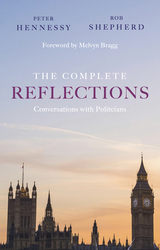
The Complete Reflections
Conversations with Politicians
Peter Hennessy and Robert Shepherd
Haus Publishing, 2020
On the BBC radio show Reflections with Peter Hennessy, the preeminent historian of British political life interviewed leading figures from the UK’s governing parties during the late twentieth and early twenty-first centuries. Bringing together transcripts of the collected interviews for the first time, The Complete Reflections features interviews the biggest names from the Thatcher era, the New Labour years, and the coalition government of the 2010s.
In The Complete Reflections, Peter Hennessy and Robert Shepherd provide not only an overview of the past three decades of British politics but also delve into the minds of those at the forefront of public life during times of great change. Hennessy’s deep knowledge and understanding of the lives and motivations of his interviewees, along with the obvious esteem in which they hold their interlocutor, leads to frank and revealing conversations in which the subject is not an object but an equal, giving these exchanges a unique veracity. The results are portraits of high authority, in which interviews become the chronicles that endure above all others—nothing less than the first draft of history.
In The Complete Reflections, Peter Hennessy and Robert Shepherd provide not only an overview of the past three decades of British politics but also delve into the minds of those at the forefront of public life during times of great change. Hennessy’s deep knowledge and understanding of the lives and motivations of his interviewees, along with the obvious esteem in which they hold their interlocutor, leads to frank and revealing conversations in which the subject is not an object but an equal, giving these exchanges a unique veracity. The results are portraits of high authority, in which interviews become the chronicles that endure above all others—nothing less than the first draft of history.
[more]
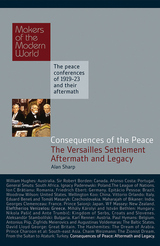
Consequences of Peace
The Versailles Settlement - Aftermath and Legacy
Alan Sharp
Haus Publishing, 2010
Consequences of Peace: The Versailles Settlement - Aftermath and Legacy. This final volume in the Paris Peace Conference series will evaluate the immediate and later effects of the last great peace gathering which sought to settle the world's affairs at a stroke - something that was not attempted after either the Second World War or the Cold War. The Versailles settlement has not enjoyed a great reputation. It has been blamed for causing a second major conflict within a generation, thus apparently fulfilling Marshal Foch's gloomy prediction that "This is not a peace, it is an armistice for twenty years." More recently commentators have suggested that the post-1989 ethnic disturbances in the Balkans and on the fringes of the former Soviet Union are "the old chickens of Versailles coming home to roost." The contemporary world still struggles to come to terms with the implications of President Woodrow Wilson's troublesome principle of national self-determination, and remains embroiled in the ambiguities and complexities of the Middle East, an area for whose boundaries and problems the Great War and settlement bear significant responsibility. We are also still seeking to realise more effectively some of the nobler ambitions of the peacemakers, expressed in the Covenant of the League of Nations, in their concern for the human rights of minority nationalities left on the wrong side of the new borders that they sanctioned, and in their attempt to extend criminal responsibility for war beyond the operational irregularities of combatants to political and military leaders. Ninety years on, the settlement still casts a long shadow.
[more]
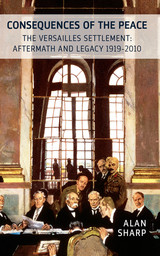
The Consequences of the Peace
The Versailles Settlement: Aftermath and Legacy 1919-2015
Alan Sharp
Haus Publishing, 2015
The Versailles Settlement, at the time of its creation a vital part of the Paris Peace Conference, suffers today from a poor reputation: despite its lofty aim to settle the world’s affairs at a stroke, it is widely considered to have paved the way for a second major global conflict within a generation. Woodrow Wilson’s controversial principle of self-determination amplified political complexities in the Balkans, and the war and its settlement bear significant responsibility for boundaries and related conflicts in today’s Middle East. After almost a century, the settlement still casts a long shadow.
This revised and updated edition of The Consequences of the Peace sets the ramifications of the Paris Peace treaties—for good or ill—within a long-term context. Alan Sharp presents new materials in order to argue that the responsibility for Europe’s continuing interwar instability cannot be wholly attributed to the peacemakers of 1919–23. Marking the centenary of World War I and the approaching centenary of the Peace Conference itself, this book is a clear and concise guide to the global legacy of the Versailles Settlement.
This revised and updated edition of The Consequences of the Peace sets the ramifications of the Paris Peace treaties—for good or ill—within a long-term context. Alan Sharp presents new materials in order to argue that the responsibility for Europe’s continuing interwar instability cannot be wholly attributed to the peacemakers of 1919–23. Marking the centenary of World War I and the approaching centenary of the Peace Conference itself, this book is a clear and concise guide to the global legacy of the Versailles Settlement.
[more]
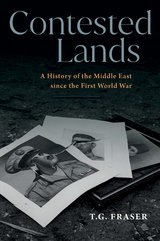
Contested Lands
A History of the Middle East since the First World War
T. G. Fraser
Haus Publishing, 2024
A history of the last century of tensions in the Middle East.
Until the First World War, the Ottoman Empire had dominated the Middle East for four centuries. Its collapse, coupled with the subsequent clash of European imperial policies, unleashed a surge of political feelings among the people of the Middle East as they vied for national self-determination. Over the century that followed, the region has become almost synonymous with unrest and conflict.
An accessible survey of the last century, Contested Lands tells the story of what happened in the Middle East and what it means today. T. G. Fraser analyzes the fault lines of the tension, including the damage brought by imperialism, the creation of the State of Israel, competition between secular rulers and emerging democratic and theocratic forces, and the rise of Arab Nationalism in the face of fraying regional alliances and the Islamic revival. Fraser offers a close look at how the events of the twenty-first century—the tragedy of 9/11, the Arab Spring, and Syria’s civil war—have combined with complex social and economic changes to transform the region. Untangling the history of the Middle East, this book offers a detailed and insightful picture of the region and why its heritage remains important today.
Until the First World War, the Ottoman Empire had dominated the Middle East for four centuries. Its collapse, coupled with the subsequent clash of European imperial policies, unleashed a surge of political feelings among the people of the Middle East as they vied for national self-determination. Over the century that followed, the region has become almost synonymous with unrest and conflict.
An accessible survey of the last century, Contested Lands tells the story of what happened in the Middle East and what it means today. T. G. Fraser analyzes the fault lines of the tension, including the damage brought by imperialism, the creation of the State of Israel, competition between secular rulers and emerging democratic and theocratic forces, and the rise of Arab Nationalism in the face of fraying regional alliances and the Islamic revival. Fraser offers a close look at how the events of the twenty-first century—the tragedy of 9/11, the Arab Spring, and Syria’s civil war—have combined with complex social and economic changes to transform the region. Untangling the history of the Middle East, this book offers a detailed and insightful picture of the region and why its heritage remains important today.
[more]

Cornflower Blue
A Case for Milena Lukin
Christian Schünemann and Jelena Volic
Haus Publishing, 2015
Based on true events, Cornflower Blue is a tense thriller that explores the troubled legacy of the Bosnian War.
On the night of the eleventh of July, two elite Serbian soldiers are on sentry duty at the Topcider military camp. The next morning, they are found dead. A military court declares them victims of a ritual suicide, and the investigation is closed. But inconsistencies in the official tribunal draw criminologist Milena Lukin to the case. What did the two guardsmen see on that fateful night, a date marking the anniversary of the Srebrenica genocide? Up against a military complex with a history to hide, Milena soon finds herself in grave danger. Meticulously researched and rich in historical detail, Cornflower Blue is a gripping tale that bravely addresses one of the darkest hours in Europe’s recent history.
“An exciting thriller, a story about the worst depths of human nature—but also a clever, nostalgic, loving homage to Belgrade and its inhabitants.”—Der Tagesspiegel, on the German edition
On the night of the eleventh of July, two elite Serbian soldiers are on sentry duty at the Topcider military camp. The next morning, they are found dead. A military court declares them victims of a ritual suicide, and the investigation is closed. But inconsistencies in the official tribunal draw criminologist Milena Lukin to the case. What did the two guardsmen see on that fateful night, a date marking the anniversary of the Srebrenica genocide? Up against a military complex with a history to hide, Milena soon finds herself in grave danger. Meticulously researched and rich in historical detail, Cornflower Blue is a gripping tale that bravely addresses one of the darkest hours in Europe’s recent history.
“An exciting thriller, a story about the worst depths of human nature—but also a clever, nostalgic, loving homage to Belgrade and its inhabitants.”—Der Tagesspiegel, on the German edition
[more]

Costing the Earth?
Perspectives on Sustainable Development
Bernd Meyer
Haus Publishing, 2009
Our economies must react. "Sustainable behavior must pay off" - this is one of the central tenets of The Sustainability Project. Costing the Earth: Restructuring the Economy for Sustainable Development outlines the economic conditions for achieving the goal of sustainable development, in Europe and around the world. It also explains the incentives for sustainable economic management using economic tools.
[more]
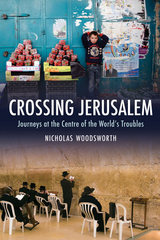
Crossing Jerusalem
Journeys at the Centre of the World’s Trouble
Nicholas Woodsworth
Haus Publishing, 2010
Jerusalem is not an ordinary city and Crossing Jerusalem is not a standard telling of its story.
At once a traditional travelogue, a questioning of spiritual values, and an examination of
the beliefs that have sustained Jerusalem’s populations through centuries of conflict and
division, this book offers an unusual yet penetrating perspective of the city and its
inhabitants.
[more]
READERS
Browse our collection.
PUBLISHERS
See BiblioVault's publisher services.
STUDENT SERVICES
Files for college accessibility offices.
UChicago Accessibility Resources
home | accessibility | search | about | contact us
BiblioVault ® 2001 - 2024
The University of Chicago Press









